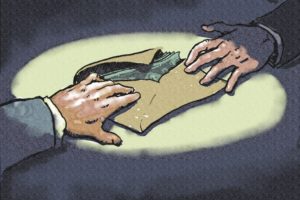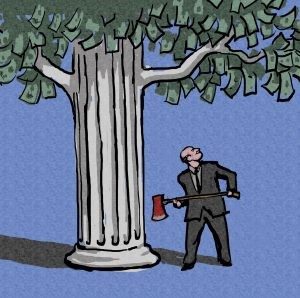Here’s how to root out government corruption

By Mark Trainer
Jun 6, 2016
(State Dept./D. Thompson)
Sometimes a government employee takes a bribe, or steals from the public, or fails to properly serve the public. That happens in the U.S. too, but in America the government takes strong measures to root out corruption and punish the guilty.
Just ask the veterans hospital employees who stole patient information and filed fraudulent tax returns. Or the federal workers who defrauded a government disability program.
All were charged with crimes, and all were convicted.

(State Dept./D. Thompson)
Corruption depletes a government’s ability to help its citizens, and it saps citizens’ faith in their government.
The most effective way to fight corruption is with oversight. Many nations accomplish this through special agencies that monitor government performance, investigate improper behavior and initiate legal measures to punish the corrupt.
In the U.S., 71 government agencies have an Office of the Inspector General (IG). These “IGs” combat fraud, waste and abuse. To assure their independence, each reports both to its agency head and to the U.S. Congress. That way no one in an agency — including its head — can stop an inspector from undertaking an investigation, or unduly influence its results.
Last year, federal inspectors general secured 5,500 corruption convictions and saved taxpayers up to $45 billion.
The U.S. is hardly alone in battling corruption. Some 133 countries have ombudsman institutions that work like the American IGs.
Poor citizens can benefit the most when government is not corrupt. Recently, Transparency International surveyed 28 sub-Saharan African countries and discovered that poor respondents were twice as likely as wealthier ones to find bribe-paying necessary. That’s because poorer citizens have less access to private services, so they rely all the more on government-provided schools, hospitals and other services.
President Obama agrees. Corruption, he says, “holds back every aspect of economic and civil life.” Addressing it “requires a commitment by the entire nation — leaders and citizens — to change habits and to change culture.”
Credit: Share America









